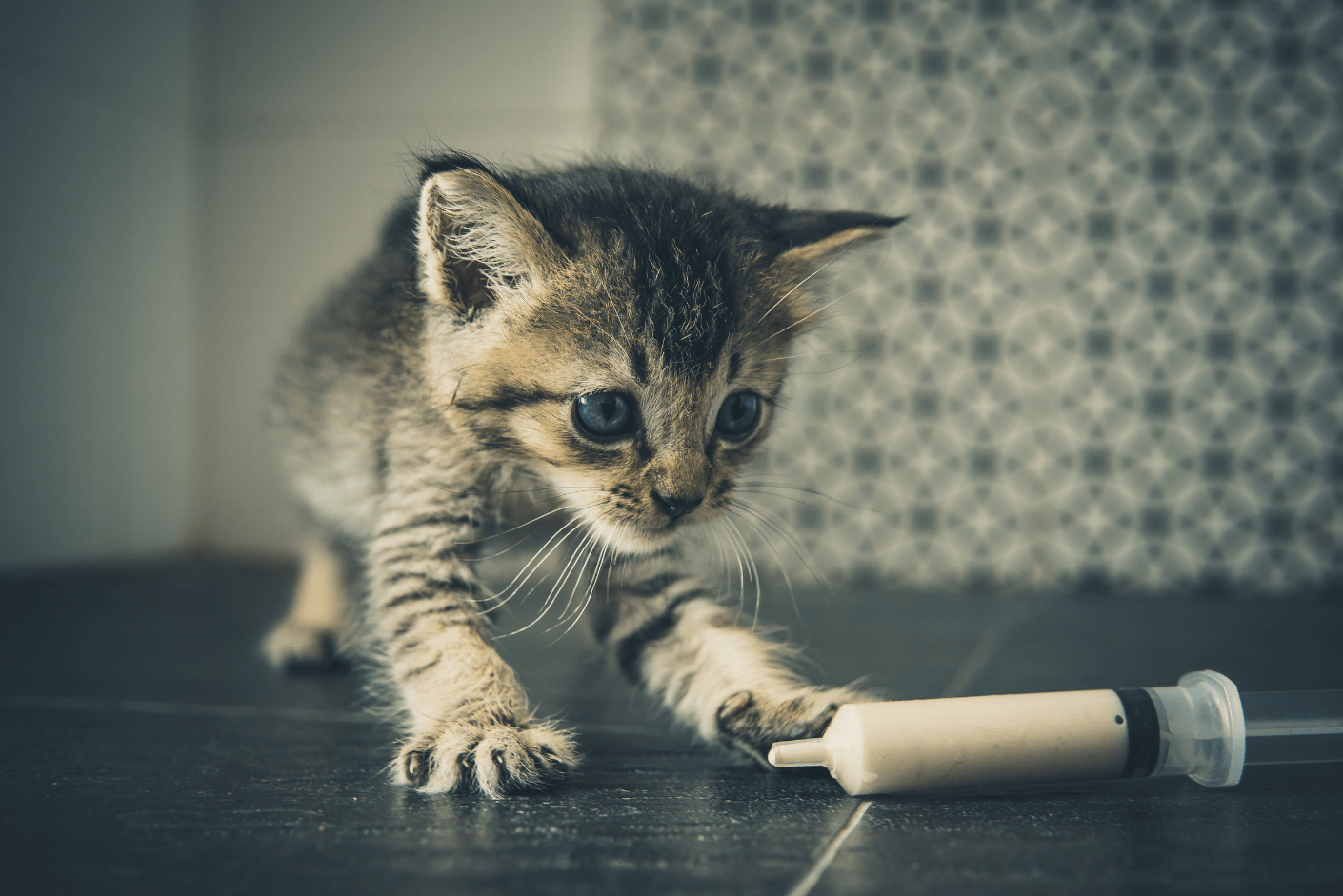Orphaned kittens are helpless and vulnerable creatures that require special care and attention. Without their mother to care for them, these kittens depend on humans to survive. Taking care of an orphaned kitten can be challenging, but with the correct information and resources, it is possible to provide them with the necessary care they need to thrive.
Feeding an Orphaned Kitten
Feeding an orphaned kitten is one of the most critical aspects of their care. Unlike adult cats, kittens require a diet high in protein and fat to support their growth and development. If you have found an orphaned kitten, you must start feeding them immediately.
A kitten milk replacer is the best option for feeding orphaned kittens. It is specially formulated to meet their nutritional needs and can be found at most pet stores or online. Cow milk or human baby formula should never be used as a substitute, as they can cause digestive issues for kittens.
i. When to Feed an Orphaned Kitten
Newborn kittens should be fed every 2-3 hours around the clock. As they get older, the frequency of feedings can be gradually decreased. When they are 6-8 weeks old, kittens can be fed four times daily. Generally, kittens should never go more than 5-6 hours without eating.
ii. How to Feed an Orphaned Kitten
Feeding an orphaned kitten requires patience and care. To start, you will need a small bottle and kitten milk replacer. Ensure to warm the milk replacer to body temperature by placing the bottle in a bowl of warm water.
Hold the kitten in a comfortable position, either cradled in your arms or on a soft blanket. Tilt the bottle so the milk fills the nipple and offer it to the kitten. Please make sure the nipple is filled with milk and that the kitten is latching onto it properly. Kittens should be allowed to eat until they are complete, but it is important not to force them to overeat.
iii. How Much to Feed an Orphaned Kitten
The amount of milk an orphaned kitten needs depends on age and weight. Generally, newborn kittens need about 1-2 tablespoons of milk per feeding. This can be gradually increased as they get older and their appetite grows. When they are 4-6 weeks old, kittens can eat around 3-4 tablespoons of milk per feeding.
As kittens grow, they will also start to eat solid food. A good rule of thumb is to offer them small amounts of moistened kitten food four times a day starting around 4 weeks of age. By the time they are 6-8 weeks old, kittens can be weaned off of milk replacers and onto a diet of solid kitten food.
Vaccination and Veterinary Care
Taking an orphaned kitten to the veterinarian as soon as possible is essential for a check-up. The veterinarian can assess the kitten’s overall health and determine if any vaccinations or medical treatment are needed. Kittens should receive vaccinations starting around 6-8 weeks of age to protect them from common feline diseases.
Taking Care of an Orphaned Kitten
In addition to feeding and veterinary care, orphaned kittens require a warm, safe, and comfortable environment. They should be kept in a quiet room away from other pets and household noise. A soft, warm blanket or bed should be provided for them to sleep in.
Kittens also need socialization and playtime. They should be gently handled and played with every day to help them develop social skills and confidence. Toys such as small balls or feather wands can entertain and stimulate kittens.
Orphaned kittens may require additional care for health issues or special needs. For example, kittens with cleft palates may require special feeding techniques or surgery, while kittens with eye infections may need medication. Working closely with a veterinarian is essential to ensure that orphaned kittens receive the necessary care and treatment.
In addition to medical care, kittens need to be litter trained. Provide a low-sided litter box with non-clumping, unscented litter. Place the kitten in the box after meals or naps, and encourage them to scratch in the litter with their paws. Most kittens will learn to use the litter box independently with time and patience.
Conclusion
Taking care of an orphaned kitten can be a challenging but rewarding experience. Orphaned kittens can grow up to be happy and healthy cats by providing the necessary care, attention, and love. Remember to consult a veterinarian and follow a proper feeding and care routine. You can help an orphaned kitten thrive and become a beloved family member with patience and dedication.
You can ask a question from Myfurries.com expert vet here https://www.myfurries.com/askvetfree.
Or register as a pet parent to get updates on your pet’s health and wellness https://www.myfurries.com/register



